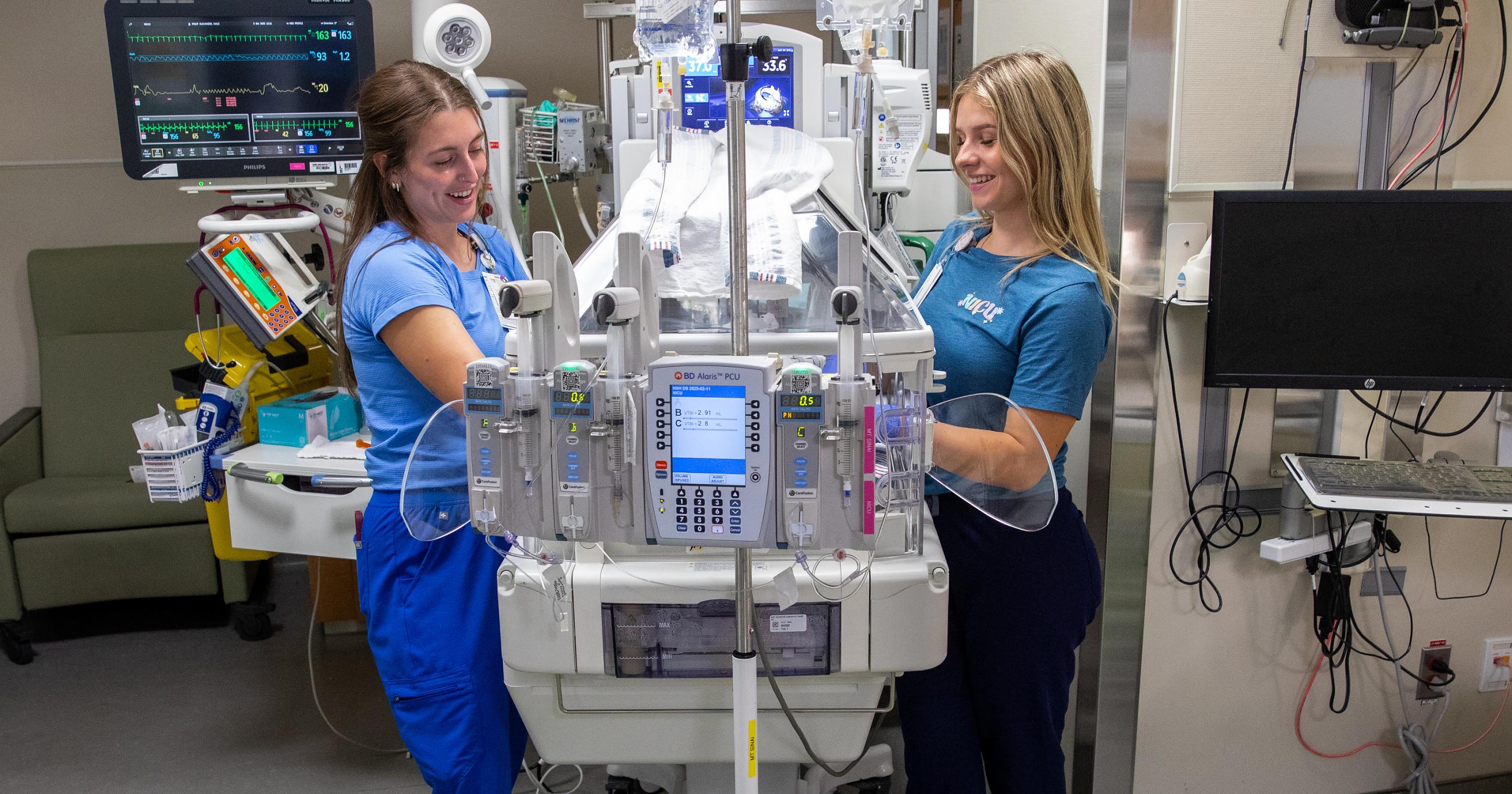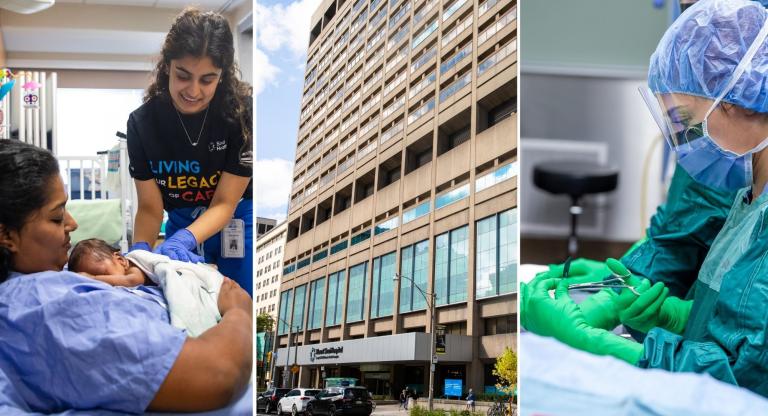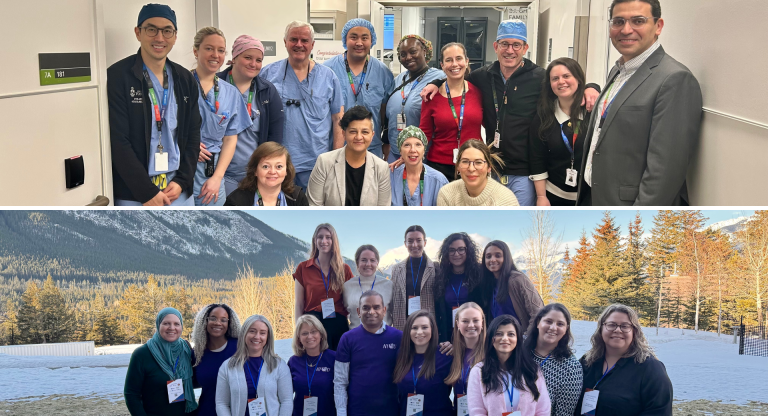Mount Sinai mentorship program empowers new NICU nurses

A Mount Sinai mentorship program is enhancing critical skills in new grads, supporting the transition from the classroom to the NICU.
For nurses fresh out of school, stepping into a busy hospital environment is both exciting and daunting.
Mount Sinai Hospital’s Neonatal Intensive Care Unit (NICU), makes the transition smoother for nurses and safer for patients, thanks to a structured mentorship program that pairs new nursing graduates with experienced nurses (preceptors).
Mount Sinai’s NICU provides specialized care for extremely premature and low birth-weight infants – an environment where every decision can be critical. That level of responsibility can feel overwhelming for new nurses. This is where preceptors play a pivotal role. This mentorship offers steady guidance, ensuring new team members develop the clinical knowledge, critical thinking, confidence, and resilience needed to thrive.
It is a relationship Kareesha Sinniah describes as “rooted in trust, respect, and safety”.
Kareesha completed the mentorship program last year. She recalls caring for an infant early in her training, who was experiencing frequent episodes of distress. Feeling uncertain, she leaned on her preceptor for support.
“Laura guided me through the process step by step, encouraging me to communicate openly with the team, and showing me how documentation can help identify trends, and strengthen patient care,” she said.
This type of hands-on coaching, combined with structured reflection practices such as daily journaling, helps new nurses consolidate their learnings. New nurses are encouraged to record what they experience during shifts, sparking deeper discussion with preceptors, and reinforcing critical thinking.
For Laura Howard, a seasoned nurse and preceptor, the benefits flow both ways.
“I feel a strong sense of responsibility to build trust with the new graduate and to lead by example, demonstrating how to provide both clinically sound and empathetic care,” she said. “A supportive learning environment sets the foundation for a smooth transition to independent practice, reinforces teamwork, and enhances patient safety and care quality.”
This creates a partnership where new nurses and preceptors can navigate challenges together, and celebrate milestones.
The mentorship program also fosters professional growth for preceptors themselves.
“This role has strengthened my clinical knowledge, deepened my understanding of evidence-based policies and NICU-specific intervention, and enhanced my communication and leadership skills,” Laura said.
For Laura, creating a safe and supportive learning environment not only fosters professional growth, but also contributes to the delivery of high-quality, compassionate care for babies in Mount Sinai’s NICU.
The impact of this approach has been recognized beyond the unit. Last year Mount Sinai’s NICU achieved Practice Transition Program (PTAP) status from the American Nurses Credentialing Centre. PTAP accreditation is the global standard for nurse residency programs, underscoring the hospital’s commitment to rigorous onboarding, lifelong learning, and excellence in care. Mount Sinai’s NICU is the only unit in Canada to achieve this prestigious accreditation.
For Kareesha, the program offered reassurance that she was not alone in her learning journey.
“The most valuable piece of advice my preceptor gave me was to ask questions and communicate my concerns clearly,” she said. “It reframed uncertainty as a natural part of learning, and a critical aspect of ensuring patient safety.”
At its core, this mentorship model reflects Mount Sinai’s dedication to developing the next generation of nurses , and advancing safe, high-quality and compassionate care for our tiniest patients and their families.












